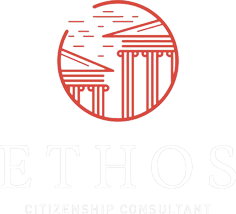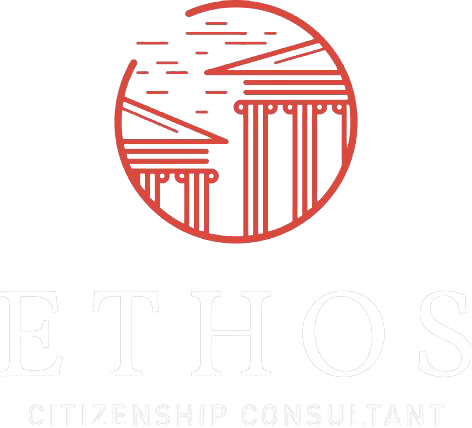

Structure of Educational System
Pre-higher education:
Duration of compulsory education: Age of entry: 5 years
Age of exit: 16 years
Structure Of School System
Primary
Type of school providing this education: Primary School Length of program in years: 6 Age level from: 5 to: 11
Lower Secondary
Type of school providing this education: Junior Lyceum/Secondary School Length of program in years: 5 Age level from: 11 to: 16
Upper Secondary
Type of school providing this education: Higher Secondary School Length of program in years: 2 Age level from: 16 to: 18
Vocational Secondary
Type of school providing this education: Colleges/Institutes Length of program in years: 4 Age level from: 16 to: 20
Types Of Schools In Malta
In Malta schools are divided into two categories: state and private schools.
State schools are free to all students and can be found in all the main towns or villages in Malta and Gozo. Transport to and from school is also free, as are books and other school materials. Parents will, however, need to buy their children’s school uniform.
There are two types of private schools in Malta: church schools and independent schools. Both offer pre-primary to upper secondary education. Both types are regulated by the ministry of education meaning the curricula are similar across various schools.
As a rule, Church schools belong to the Catholic Church, and, thanks to an agreement with the government, do not charge school fees. The government covers salaries although parents will be asked to give an annual donation to help with school costs. Transport, school supplies and uniforms will need to be paid for by the parents.
To get your child into a Church school you need to enter them into a sort of lottery. The space available varies from year to year but is, in general, pretty limited.
Nuns and priests teach at Church schools and some are involved in the administration and management of the school. However, fewer people are joining the clergy nowadays, meaning there are fewer nun or priest teachers and the majority of staff at most Church schools tend to be lay people.
International And Other Private Schools
There are a good number of independent schools, and a fair number of international schools that care for foreigners in Malta. Parents pay school fees for these institutions and also need to buy school supplies, uniforms and pay for transport.
Specialist Schools
There are four special needs resource centres in Malta. These have specialist teachers as well as equipment and other resources for children with learning difficulties. The schools also help with the integration of children of all ages with special needs into mainstream schooling.
Language
You’ll be pleased and relieved to learn that, since Malta is a bilingual country, both English and Maltese are spoken in the classroom and on the playground. English may not be your child’s first language but the fact that children in Malta speak at least two languages (many also speak Italian) will surely help your kids integrate better at school.
Admittedly, although on paper both English and Maltese are spoken at school, different schools tend to favour one of the two languages.
In state schools, the main language of instruction is Maltese, except for English lessons. Maltese tends to be the favoured language outside classes too.
In private schools, lessons are in English, except for Maltese. Students will speak a mix of both English and Maltese outside class, depending on what language they speak at home or what their peers speak.
Some parents of children who are not Maltese choose for their children to opt out of Maltese lessons, although they are usually welcome to attend.
Curriculum
Malta’s education system is very highly rated. While international schools cater to a variety of curricula, Malta mostly follows the British curriculum: children study a wide range of subjects and have mid-year and final exams.
The educational system is structured in four stages: pre-primary (ages three to five), primary (ages five to 11), secondary (ages 11 to 18) and tertiary education. Attending school is compulsory up to the age of 16.
Homework
The homework workload can be rather high. Senior school children can have between one to two hours of homework every day.
Religion
The Catholic religion is taught in classes but religion is not a compulsory subject for non-nationals. You can decide whether you would like your child to attend religion lessons. If you decide to opt out, then they can study or read in the library, for example.
Terms and Holidays
The scholastic year runs from September to June. This means summer holidays last a long three months. Christmas and Easter holidays are around two weeks long and midterms are only about two days long. In addition to these breaks there are also a good number of public and religious holidays dotted through the year.
Higher Education
Main laws/decrees governing higher education:
Decree: Education Act Year: 1998
Concerns: All education levels
Classes from: Oct to: Jun
Long vacation from: 15 Jul to: 30 Sep
Languages of instruction: English, Maltese
University
There is one University in Malta – the University of Malta, although a few foreign universities are being set up. UoM is one of the oldest universities in the Mediterranean.
Centrally situated in Msida, UoM is the highest teaching institution on the island. There is no university in Gozo and many Gozitans move to Malta to complete their tertiary education.
Education at tertiary level is publicly funded and is also free, and students receive a stipend as well as an allowance for academic-related expenditure.
Some 11,000 students study at the University. Of these, some 650 are international students hailing from 77 countries. The University regularly hosts a large number of Erasmus and other exchange students. Similarly, many University students here get to go on exchanges to Universities the world over. Almost 3,000 students graduate annually.
The University offers a wide range of full-time and part-time degrees as well as diploma courses. The primary language of instruction at the University is English.
In order to read for a first degree at University you need to have the required ‘A’ level qualifications or equivalent. You can enter as a mature (over 25-year-old) student and the requirements for entry at this level are different than those for people under 25.
University Level Studies
University level first stage: Bachelor's degree: The Bachelor's Degree is obtained in three to five years depending on the field of study. University level second stage: Master's degree/Postgraduate diploma:
The second stage leads to the award of a Master's Degree or a Postgraduate diploma after a period of one or two years of study.
University level third stage: Doctor's degree: The third stage leads, after at least three years of study following the award of a Master's Degree, to the Doctor's Degree. Candidates are required to submit a thesis after a period of research on an approved topic.
Admission To Higher Education
Name of secondary school credential required: Matriculation Certificate
Minimum score/requirement: C
For entry to: All programmes except Medicine and Surgery
Alternatives to credentials: Alternative qualifications are considered if comparable. In the case of students over 23, applicants are interviewed and assessed by the Faculty concerned.
Foreign Students Admission
Definition of foreign student: A foreign student is a student who does not hold Maltese citizenship.
Quotas: In the case of Medical courses, thirty places are reserved for foreign applicants.
Admission requirements: Foreign students must have qualifications equivalent to the Matriculation Certificate, such as the General Certificate of Education at Advanced (A) levels, the International Baccalaureate and the American Advanced Placement System.
Entry regulations: Foreign students must have an entry permit and financial guarantees if they are staying for more than three months.
Language requirements: A good knowledge of English is essential. The University provides a Foundation Studies course and a Pre-Sessional Language course prior to entry to a regular course of study.
University Residence
International students can stay at the Malta University Residence which is conveniently located just over three km from the University Campus. There is a free bus service connecting the residence to the university which runs on a regular basis. You can find out more information about the residence by clicking here.
Malta College for Arts, Science and Technology
MCAST is a vocational education and training institution. Set up in 2001, the college has grown rapidly over the past few years and is now made up of 10 institutes located around Malta and Gozo.
Students can study a wide range of subjects, from agribusiness, to applied science, art and design, building and construction, business and commerce, community service, electrical and electronics engineering, information and communication technology, mechanical engineering and maritime studies.
The college offers 170 full-time and over 300 part-time vocational courses ranging from certificates to degrees, preparing students for careers in different sectors of the economy of for higher education.
The college collaborates closely with local industries to make sure that students get hands-on experience as well as gain the necessary contacts and exposure to the sector they wish to work in.
The Institute Of Tourism Studies
The ITS – located in St Julian’s and with a branch in Gozo – provides training to students who wish to work in the hospitality industry. The organisation trains students aged 16 and over in various disciplines in the tourism industry. Courses include Hospitality and Tourism Management, Hotel Operations, Accommodation Operations, Travel Agency Operations, Travel and Tourism, and Tour Guiding.
Adult Education
Have you ever thought about learning German or brushing up on your sewing skills, or perhaps getting a qualification in marketing, or maybe learning how to garden professionally? The Employment Training Corporation (ETC) holds courses for adults in Malta from business writing, to basic plumbing and entrepreneurship skills, as well as basic literacy classes and specific professional training.
Courses are taught both during the day and in the evening, and there is a special Night Institute for Further Education that offers various vocational courses for adults at night.
Because the ETC is a government service, most of the courses are free.
Services
Consulting services
Malta
The Company

Ethos citizenship consultant
Việt Nam: 3rd Floor, Lancaster Building, 20 Nui Truc, Giang Vo Ward, Ba Dinh District, Hanoi, Vietnam
cs@ethos.com.vn
www.ethos.com.vn
Malta: Level 4, The penthouse, Suite 2, Ewropa Business Centre, Triq Dunkarm, Birkirkara, BKR 9034
2020 Ethos. All Rights Reserved